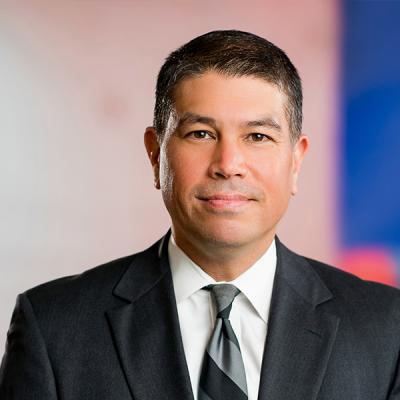FTC Chair Ferguson Tells Congress Agency Needs Extra Resources to Enforce AI Deepfake Act, and Trump Signs Nuclear Energy EO — AI: The Washington Report
- On May 15, FTC Chair Andrew Ferguson testified to the House Appropriations Committee that his agency needs additional resources to fulfill its enforcement obligations under the TAKE IT DOWN Act, which bans AI-generated non-consensual intimate imagery (NCII).
- The law gives the FTC the responsibility to enforce the law’s notice and takedown requirement, which requires social media platforms, websites, and other online platforms to remove NCII within 48 hours of notice from victims.
- Chair Ferguson told lawmakers that his agency will need new IT infrastructure and special investigators and attorneys to enforce the notice and takedown requirement. The FTC has not submitted a budget request for FY 2026, but Chair Ferguson said the agency’s “emerging priorities” around AI will “require meaningful investments.”
- Separately on May 23, President Trump signed an Executive Order (EO) on “Deploying Advanced Nuclear Reactor Technologies for National Security.” The EO directs the Department of Energy to approve and support privately funded nuclear reactor technology projects at DOE sites to power AI data centers and supply uranium for such projects. The EO is the latest effort by the White House to make federal resources available for AI infrastructure.
FTC Needs More Resources to Enforce AI Deepfake Act and Tackle AI Fraud, Says Chair Ferguson
At the House Appropriations Hearing on the FTC’s FY 2026 budget, Chair Ferguson testified that his agency will need additional staff and resources to enforce the TAKE IT DOWN Act’s notice and takedown requirement for NCII, which we wrote about, as well as address AI-related fraud.
Chair Ferguson said his agency will “need a sort of segregated technology system to house [NCII] material, when we’re conducting investigations.” Given the sensitivity of NCII, “we’re not going to want that [material] intermingled with the sort of other bread and butter data that the Commission brings on to conduct investigations,” according to the chair.
Chair Ferguson also expressed the need for his agency to bring on additional staff, including special investigators and lawyers, to enforce the law. “Dealing with [NCII] takes a real psychological toll on investigators,” the chair told lawmakers, “but there are investigators and lawyers that have training dealing with this stuff… and we would want to bring some of those folks on to maximize our enforcement efforts.”
The Chair also addressed the rise in scam and impersonation calls, which he said are “supercharged” by AI and are “a truly terrifying experience.” Addressing these calls “will require [a] sort of a whole of government approach,” according to the chair, “because we have to both stop it before it gets to the consumer through their phone.”
The Chair told lawmakers in his opening statement that “emerging priorities,” including the TAKE IT DOWN Act and AI fraud, “require meaningful investments” in the FTC, but he stopped short of discussing a specific budget proposal
After the FTC submits its annual budget request, which Chair Ferguson said the agency is still working on, Congress must finalize the agency’s FY 2026 budget. During the budget hearing, both Republican and Democratic lawmakers appeared aligned in providing the FTC with additional resources. “We’ve got to make sure you have the resources you need to do the job,” Rep. Alford (R-MO) told Chair Ferguson. Rep. Steny Hoyer (D-MD) also appeared supportive of increasing funding for the FTC.
Nuclear Energy Executive Order to Power AI Data Centers
Separately, on May 23, President Trump signed a Nuclear Energy Executive Order “to rapidly deploy advanced nuclear technologies to support national security objectives, including powering artificial intelligence infrastructure.” According to the EO, “Advanced computing infrastructure for artificial intelligence (AI) capabilities and other mission capability resources at military and national security installations and national laboratories demand reliable, high-density power sources that cannot be disrupted by external threats or grid failures.”
The EO contains two main provisions related to AI:
- It directs the Secretary of Energy to “site, approve, and authorize the design, construction, and operation of privately funded advanced nuclear reactor technologies at Department of Energy-owned or controlled sites for the purpose of powering AI infrastructure” by November 2027.
- It also directs the Secretary “to release at least 20 metric tons of high-assay low-enriched uranium into a readily available fuel bank for private sector projects operating nuclear reactors to power AI infrastructure at DOE sites.”
The EO builds on President Trump’s previous efforts to stimulate private-public partnerships for and investments in AI data centers. During his first week in office, the president announced $500 billion in private investments for AI data centers and pledged to expedite the permitting process for the data centers, as we wrote about. And in April, DOE released a Request for Information regarding plans to lease 16 federal sites for the construction of AI infrastructure by the end of 2027.
Authors
Bruce D. Sokler
Member / Co-Chair, Antitrust Practice
Alexander Hecht
ML Strategies - Executive Vice President & Director of Operations
Christian Tamotsu Fjeld
Senior Vice President





